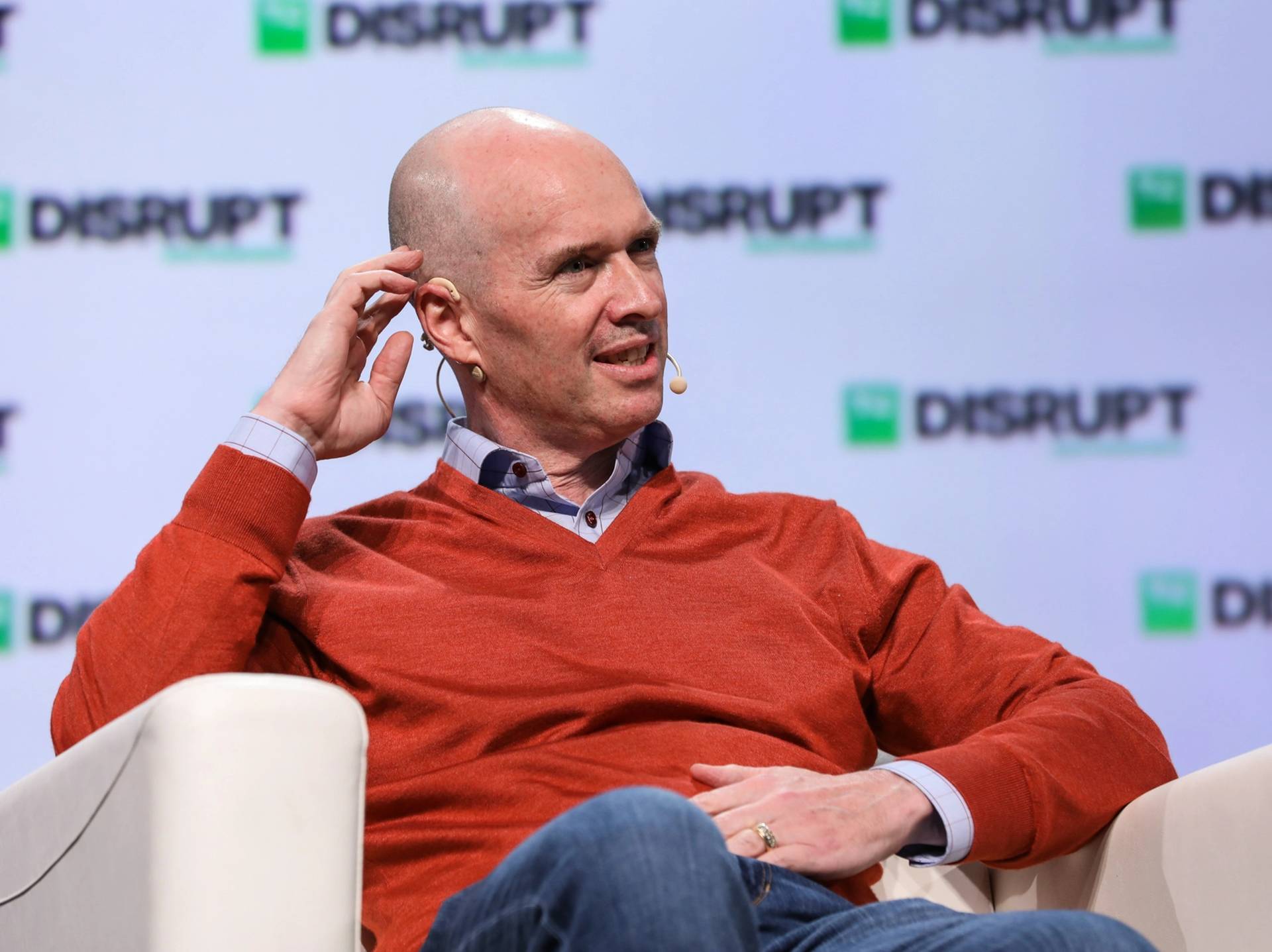위키 구독하기
Share wiki
Bookmark
Ben Horowitz
0%
Ben Horowitz
벤자민 아브라함 호로위츠(Benjamin Abraham Horowitz, 1966년 6월 13일 출생)는 미국의 사업가, 투자자, 블로거, 작가입니다. 그는 기술 기업가이자 마크 안드레센과 함께 벤처 캐피털 회사인 Andreessen Horowitz를 공동 창립했습니다. 그는 스타트업에 관한 책인 The Hard Thing About Hard Things: Building a Business When There Are No Easy Answers[5]와 What You Do Is Who You Are: How to Create Your Business Culture[4]의 저자입니다.[1][2][3]
초기 생애 및 교육
벤 호로위츠는 영국 런던에서 태어나 캘리포니아주 버클리에서 자랐습니다. 그는 엘리사 크라우트해머와 보수 성향의 작가이자 정책 옹호자인 데이비드 호로위츠의 아들입니다. 그는 1988년 컬럼비아 대학교에서 컴퓨터 과학 학사 학위를, 1990년 캘리포니아 대학교 로스앤젤레스 캠퍼스에서 컴퓨터 과학 석사 학위를 받았습니다.[2][6]
경력
호로위츠는 1990년 실리콘 그래픽스에서 엔지니어로 경력을 시작했습니다. 1995년에는 넷스케이프에서 마크 안드레센과 합류하여 제품 관리자로 일했습니다. 1997년부터 1998년까지 호로위츠는 넷스케이프의 디렉터리 및 보안 제품 라인 담당 부사장을 역임했습니다. 1998년 넷스케이프가 AOL에 인수된 후 호로위츠는 AOL의 전자 상거래 부문 부사장으로 근무했습니다.[7]
1999년 9월, 호로위츠는 안드레센, 팀 하우스, 인 식 리와 함께 Opsware(이전의 Loudcloud)를 공동 창립하고 사장 겸 CEO를 역임했습니다. Opsware는 포드 자동차, 나이키, 가넷 컴퍼니, 뉴스 코퍼레이션, 미국 육군 및 기타 대규모 조직과 같은 기업 및 인터넷 고객에게 인프라 및 애플리케이션 호스팅 서비스를 제공했습니다. 2007년, 휴렛팩커드는 Opsware를 16억 달러에 인수하여 서비스형 소프트웨어 및 클라우드 호스팅의 선구자 중 하나가 되었습니다.[8]
Opsware를 휴렛팩커드에 매각한 후 호로위츠는 휴렛팩커드에서 1년 동안 HP 소프트웨어 부문 부사장 겸 총괄 관리자로 근무하며 3,000명의 직원과 연간 28억 달러의 수익을 책임졌습니다.[9]
Andreessen Horowitz (a16z)
2009년 7월 6일, 호로위츠와 안드레센은 하이테크 분야의 초기 단계 스타트업과 기존 성장 기업 모두에 투자하고 자문하기 위해 Andreessen Horowitz를 설립했습니다. Andreessen Horowitz는 초기 자본금 3억 달러로 시작하여 3년 이내에 3개의 펀드를 통해 27억 달러를 관리하게 되었습니다.[11]
초기 투자 및 주목할 만한 성공
페이스북
2010년, 설립 1년 후 Andreessen Horowitz는 페이스북에 8천만 달러를 투자했습니다. 당시 페이스북은 이미 소셜 미디어 거물이었지만, 이 투자는 회사의 비전과 성장 잠재력이 있는 기술 회사에 베팅하려는 의지를 입증했습니다.[12]
트위터
2011년, Andreessen Horowitz는 다른 투자자들과 함께 트위터(현재 X)에 8천만 달러의 자금을 지원했습니다. 이 투자는 트위터가 글로벌 소셜 미디어 플랫폼으로서의 입지를 확장하고 공고히 하는 데 도움이 되었습니다.[12]
에어비앤비
Andreessen Horowitz는 2011년 에어비앤비에 1억 1,200만 달러를 투자했습니다. 당시 에어비앤비는 숙박 산업의 선두 기업이었으며, 이 투자는 회사가 전 세계적으로 운영을 성장시키고 확장하는 데 필요한 자본이었습니다.[12]
옵티미즐리
2014년 5월, Andreessen Horowitz는 Benchmark Capital 및 Bain Capital Ventures의 참여로 Optimizely의 5,700만 달러 규모의 시리즈 B 자금 조달을 주도했습니다.[17]
기타 투자
이 회사는 또한 LinkedIn, Slack, GitHub, Okta, Coinbase, Instabase, Pinterest, Groupon 등과 같은 회사에 초기 투자를 했습니다.[12]
a16z 암호화폐
a16z 암호화폐는 Andreessen Horowitz 내의 자회사 펀드로, 특히 암호화폐 관련 기술 및 회사에 투자하는 데 전념하고 있으며, 조직의 제너럴 파트너인 크리스 딕슨이 이끌고 있습니다.[11]
또한 YouTube에서 교육 미디어 리소스를 운영합니다. 이는 web3 및 암호화폐 공간의 뉴스와 정보를 위한 결정적인 채널입니다. 10.5K 이상의 구독자와 185개의 비디오를 통해 연구원의 개요 및 통찰력, 개발자 및 엔지니어의 데모, 제품 빌더 및 제작자의 더 많은 정보를 제공합니다. a16z는 Google Podcasts, Spotify, Apple Podcasts 등과 같은 팟캐스트 채널에서도 호스팅됩니다.[10]
"비트코인의 핵심 아이디어, 즉 커뮤니티가 소유한 금융 서비스가 있다는 아이디어는 사람들에게 정말 매력적인 매우 강력한 아이디어입니다." - 블록체인 미래에 대한 벤 호로위츠의 의견[15]
"블록체인을 생각하는 한 가지 방법은 오픈 소스 소프트웨어가 소프트웨어 계층에 대해 수행한 작업을 서비스 계층에 대해 수행하고 있다는 것입니다."
벤처
벤은 Anyscale, Caffeine, Databricks, Mayvenn, NationBuilder, Okta ($OKTA), Tanium, Navan 및 UnitedMasters의 이사회에서 활동하고 있습니다.[7]
업계 영향력
호로위츠와 안드레센은 Vanity Fair의 2011년 New Establishment List에서 6위, CNET의 2011년 Most Influential Investors 목록에서 1위, 2012년 Forbes Midas List of Tech's Top Investors에서 각각 2위와 21위를 차지했습니다.[13]
2012년 4월, 호로위츠와 Andreessen Horowitz의 제너럴 파트너인 마크 안드레센, 피터 레빈, 제프 조던, 존 오파렐, 스콧 와이스는 벤처 캐피털에서 얻는 평생 소득의 절반을 자선 단체에 기부하기로 약속했습니다.[14]
AI에 대한 견해
인공 지능(AI)에 대해 벤 호로위츠는 역사가 AI가 일자리를 없애기보다는 더 많은 일자리를 창출할 것이라고 시사하므로 인간은 AI를 두려워해서는 안 된다고 말합니다.[16]
“이번에는 다를 수도 있습니다. 이번에는 기술이 모든 일자리를 없애고 사람들이 할 일이 없어 연극을 하고, 음악을 쓰고, 그림을 그려야 할 수도 있습니다. 하지만 그것은 가능성이 높은 베팅은 아닙니다.”라고 그는 말했습니다.
모든 기술 변화에 대해 비즈니스와 사회에 미치는 영향은 막대하지만 예측하기 어렵습니다.
“인간의 야망과 독창성을 과소평가하는 데 주의해야 한다고 생각합니다.”라고 호로위츠는 말했습니다. “미래의 가능성, 즉 우리가 만들거나 할 수 있는 것들은 정말 예측하기 어렵습니다.”
호로위츠는 또한 인공 지능이 기계가 더 잘하는 일에서 인간을 해방시키고 사람들이 기계가 잘하지 못하는 일, 즉 사람들과 상호 작용하는 데 시간을 할애할 수 있을 것이라고 예측합니다.[16]
"비즈니스 예측과 같은 것에 관해서는 기계가 개입하여 분기별 수익 예측을 생성하는 것과 같이 특정 작업을 수행하는 데 인간보다 더 나은 역할을 할 것입니다."라고 호로위츠는 말했습니다.
정확한 비즈니스 예측을 생성하려면 거시 경제 환경, 회사의 고객 사용량 및 경쟁 환경과 같은 방대한 양의 데이터를 분석하여 더 나은 분기별 수익 예측을 생성해야 합니다.
“어떤 인간도 그 모든 것을 분석하고 예측을 내놓을 수 없지만, 기계는 시간이 지남에 따라 확실히 더 나은 역할을 수행할 수 있으며, 이를 통해 비즈니스를 더 잘 계획하고 적절한 수의 사람을 고용할 수 있습니다.”라고 그는 말했습니다.[16]
잘못된 내용이 있나요?
